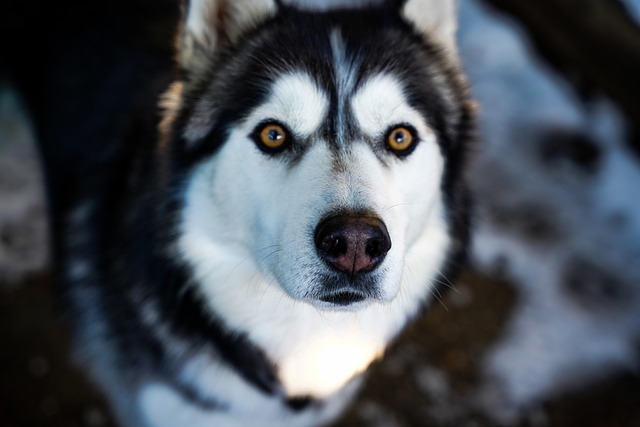
How can I tell if my dog's heatstroke is serious
Let’s be real: It’s a sticky August morning in Los Angeles, and you took your 2-year-old Golden Retriever, Max, for a walk a little later than usual
There’s something undeniably captivating about a husky’s gaze, and when those eyes are a rich shade of brown, it’s like stumbling upon a hidden gem. While many instantly picture piercing blue or striking heterochromia, the question lingers: just how rare are brown eyes in huskies? Beyond mere aesthetics, understanding eye color genetics can help you navigate local pet health regulations and connect deeper with your four-legged friend.
Contrary to popular belief, brown eyes aren’t a genetic anomaly in huskies—they’re simply overshadowed by the breed’s iconic icy blues. The genes responsible for eye color operate on a complex spectrum, with brown being a recessive trait. This means both parent dogs must carry the brown-eye gene for it to manifest in their puppies. As a result, brown-eyed huskies typically make up only about 10-20% of the breed, making them a delightful rarity at dog parks and neighborhood strolls.
 In some communities, eye color can subtly impact pet care compliance. For example, darker eyes may be less prone to certain sun-related eye issues, reducing the need for specialized eyewear during sunny hikes. However, it’s crucial to remember that regardless of color, regular veterinary check-ups—required by many local animal welfare laws—remain essential. Brown-eyed huskies can still develop common breed-specific conditions like cataracts or corneal dystrophy, so staying proactive about their eye health keeps you on the right side of regulations and ensures your pup’s well-being.
In some communities, eye color can subtly impact pet care compliance. For example, darker eyes may be less prone to certain sun-related eye issues, reducing the need for specialized eyewear during sunny hikes. However, it’s crucial to remember that regardless of color, regular veterinary check-ups—required by many local animal welfare laws—remain essential. Brown-eyed huskies can still develop common breed-specific conditions like cataracts or corneal dystrophy, so staying proactive about their eye health keeps you on the right side of regulations and ensures your pup’s well-being.
Brown eyes often bring a unique personality to the table, too. Many owners swear their brown-eyed huskies have a warmer, more soulful demeanor compared to their blue-eyed counterparts. This perception aligns with how we emotionally bond with pets in Western cultures—an expressive gaze can deepen the human-animal connection. Whether it’s a soulful stare during couch cuddles or an intense look while playing fetch, these dogs have a way of making you feel seen.
If you’re lucky enough to own a brown-eyed husky, embracing their rarity comes with practical perks. At pet events or community gatherings, your dog is bound to draw attention, sparking conversations that strengthen local pet owner networks. Just be sure to keep them leashed in public spaces as required by law—no matter how irresistible those eyes are, safety always comes first.
In the end, the rarity of a brown-eyed husky isn’t just about numbers—it’s about celebrating the unique charm each dog brings to our lives. Whether you’re a seasoned husky owner or considering adding one to your family, these chocolate-eyed beauties remind us that every pet has its own story to tell. So next time you lock eyes with a brown-eyed husky, take a moment to appreciate the magic—after all, some of life’s best surprises come in the form of a wagging tail and a warm, brown gaze.

Let’s be real: It’s a sticky August morning in Los Angeles, and you took your 2-year-old Golden Retriever, Max, for a walk a little later than usual

You're enjoying a summer afternoon at the park when you notice your dog has stopped panting and appears disoriented - their gums are bright red

Let’s paint the picture: You’re in your Denver apartment, watching your 4-year-old Boston Terrier, Ruby, plop down mid-play session with her favorite toy

Many dog owners notice their pets nails seem shorter after regular walks,but how much does this daily activity actually help?The answer depends on where you walk—concrete sidewalks or asphalt streets gently file nails as a dog's paws hit the ground

Most dog owners notice their pup scooting across the carpet at some point, but few connect it to impacted anal glands. These small sacs near a dog’s rectum secrete a scent for marking territory

Most vets agree that regular dog teeth cleaning is key to avoiding painful dental issues later. For healthy adult dogs, a professional cleaning at the vet’s office every 12 to 18 months usually works well.